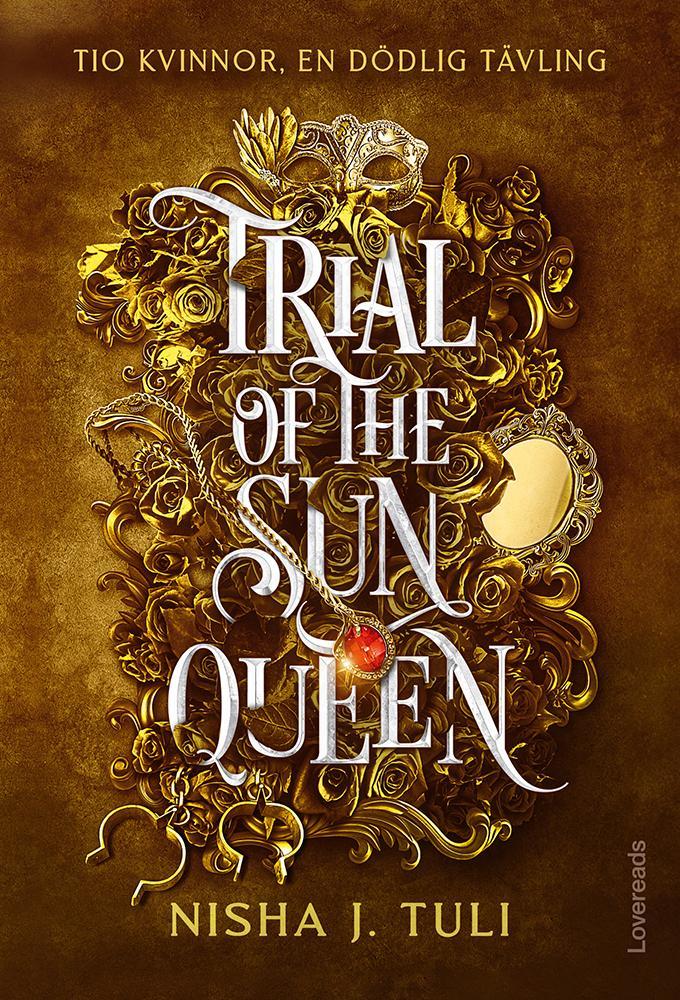Intervju med Nisha J. Tuli, författaren av Trial of the Sun Queen
I samband med utgivningen av den svenska översättningen av den magiska romantasyn Trial of the Sun Queen har vi fått möjligheten att intervjua författaren Nisha T. Juli.
I samband med släppet har vi även lagt upp ett läsprov från boken:
Läsprovet hittar ni här
What inspired you to write "Trial of the Sun Queen"?
I'd just been reading the Prison Healer, and I loved the idea of a prison setting, so that's where I knew I wanted to start the book. I began with an image of the prison, the trials, and Lor. I also knew I wanted the bait-and-switch love interest, so I came up with Atlas and Nadir, and the rest really flowed from there. I knew I wanted a contest for a crown, and I knew wanted something that felt like slightly dystopian books of the past like the Hunger Games, but make it fae royalty instead. I tend to discover the story as I write my first draft with only some of the higher level details mapped out, so often it's part of the journey for me to see where it ends up.
Can you tell us about the research process behind the book?
I wouldn't say I did a ton of research other than reading a lot of books in the genre--I always do my best writing when I'm reading amazing books. I tend to be a discovery writer and find the story as I'm writing it so a lot of the details are created to serve the plot. I actually tend to avoid anything historical, precisely because I'm not a fan of doing a lot of research.
What themes or messages do you hope readers take away from your book?
I think the books are very much about perserverance and being true to one's self. It's a message for women and girls never to allow yourself to be smaller or quieter to please someone else. I think they're also about learning to trust after you've been lied to and understanding that it's okay to let someone else take care of you once in a while.
Were there any particular historical or mythological influences on the world-building in your book?
Not specifically. I drew on a lot of fantasy details from books I'd read, but I also made a lot of it up. The idea of Ouranos, Aphelion and The Aurora all had something to do with the sky, and I built the rest of the world from there. There are a few South Asian touches I used in The Aurora, and it's always interesting to see when readers pick up on that.
Can you share any interesting anecdotes or behind-the-scenes stories from the writing process?
When I was coming up with the ideas for what the trials might be, I was watching The Witcher and was inspired by the scene where Ciri is training on the gauntlet. I thought a larger scale version of that would make for a perfect trial and thus, that scene was born with some deadly additions to it.
What do you think sets "Trial of the Sun Queen" apart from other fantasy novels?
My goal with Trial and the series was always to make it feel familiar but not the same. I used a lot of the tropes common in the genre, but I like to think I added my own voice and my own twist to make it feel fresh and a little bit different. I especially think as the series progresses that it ends in a way that people won't expect. Making my FMC Lor, a woman of colour, definitely sets this series apart from almost every popular book in this genre. I absolutely love getting messages from readers who are so happy to finally see someone who looks like them in a story like this.
Did you encounter any difficulties while writing the book, and if so, how did you overcome them?
The hardest part was getting it done. When I wrote the first draft of Trial, I was still working a full-time job and I have two young children, so carving out time to write was a big challenge when I was starting out. I, thankfully, have a very supportive partner who took on a lot of the household load so I could focus on writing. I also learned to write under any circumstances and within any timeframe, such as snatching a 20 minute block here or there or when my kids were playing behind me. You learn to block out the noise. Now that I write full time, it's such a relief to be able to focus on it more.
